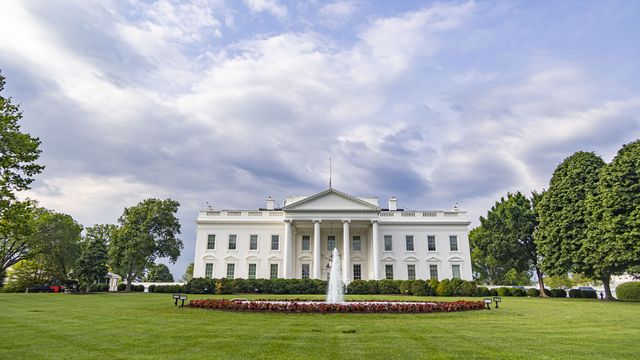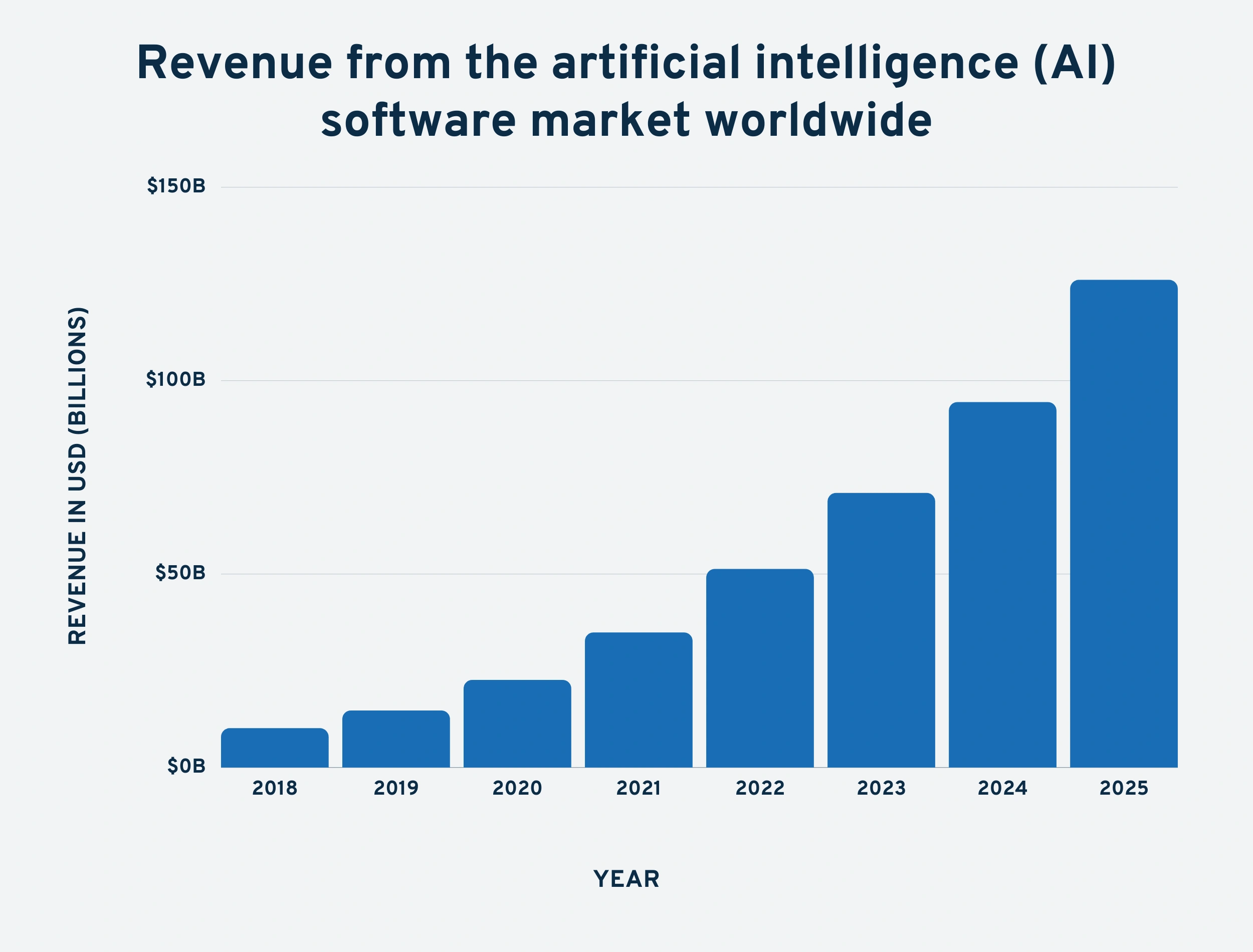Economic Uncertainty: CEOs Warn Of Trump Tariff Fallout

Table of Contents
Rising Costs and Reduced Profit Margins
The Trump tariff fallout has significantly impacted businesses' bottom lines, leading to rising costs and reduced profit margins. This is largely due to disruptions in global supply chains and increased inflationary pressures.
Impact on Supply Chains
Tariffs have severely disrupted global supply chains, creating a ripple effect throughout the US economy. This disruption manifests in several ways:
- Increased shipping costs: Tariffs directly increase the cost of imported goods, but the impact extends beyond the tariff itself. Increased bureaucratic hurdles and delays add to transportation costs.
- Sourcing challenges: Businesses are forced to seek alternative suppliers, often at higher costs and with longer lead times. This impacts production efficiency and can lead to shortages.
- Production delays: Disruptions to the supply chain result in significant production delays, impacting delivery schedules and potentially leading to lost sales.
- Reliance on more expensive domestic suppliers: While some businesses attempt to source domestically to avoid tariffs, this often means paying significantly higher prices for inputs.
For example, the automotive industry has been significantly impacted. Tariffs on steel and aluminum increased production costs, forcing automakers to either absorb the higher prices, leading to reduced profit margins, or pass them on to consumers in the form of higher vehicle prices. The impact on supply chains led to production slowdowns and in some cases, plant closures.
Price Increases for Consumers
Businesses facing increased input costs due to the Trump tariff fallout are often forced to pass those costs onto consumers through higher prices. This leads to a decrease in purchasing power and contributes to inflationary pressures:
- Inflationary pressures: Higher prices for goods and services contribute to overall inflation, eroding the value of consumers' earnings.
- Decreased consumer spending: Facing higher prices, consumers may reduce their spending, leading to slower economic growth.
- Impact on low-income households: Low-income households are disproportionately affected by price increases as a larger percentage of their income is spent on essential goods and services.
Examples of products affected include washing machines, steel products, and agricultural goods, all experiencing price increases due to tariffs. This demonstrates how the Trump tariff fallout directly impacts consumer wallets.
Reduced Investment and Job Losses
The economic uncertainty created by the Trump tariff fallout has led to reduced investment and job losses across various sectors. Businesses are hesitant to commit to expansion plans or new hires in an environment characterized by unpredictable trade policies.
Uncertainty and Hesitation
The volatile nature of trade policies under the Trump administration fostered an environment of uncertainty, causing businesses to adopt a wait-and-see approach:
- Decreased capital expenditures: Businesses are less likely to invest in new equipment, technology, or expansion projects when facing unpredictable tariffs and trade disputes.
- Hiring freezes: Companies postpone hiring decisions, opting to maintain existing staffing levels rather than expanding their workforce.
- Postponement of projects: Businesses postpone or cancel long-term projects due to concerns about the potential impact of future tariffs and trade restrictions.
For instance, several manufacturing companies announced hiring freezes or plant closures as a direct consequence of the tariff-related uncertainty and reduced demand.
Impact on Specific Sectors
Certain industries, particularly agriculture and manufacturing, have experienced a disproportionately negative impact from the Trump tariff fallout:
- Job losses in affected sectors: Thousands of jobs have been lost in sectors heavily reliant on international trade, leading to economic hardship in affected communities.
- Reduced competitiveness in global markets: US businesses faced higher production costs, making them less competitive in international markets.
- Potential business closures: Some businesses have been forced to close down due to the inability to absorb the increased costs associated with the tariffs.
Statistics on job losses in specific agricultural sectors impacted by retaliatory tariffs from major trading partners clearly demonstrate the significant negative consequences of these trade policies.
Geopolitical Tensions and Trade Wars
The Trump administration's imposition of tariffs triggered retaliatory measures from other countries, escalating trade tensions and damaging international relationships.
Retaliatory Tariffs
Other countries responded to US tariffs with their own retaliatory measures, leading to a cycle of trade disputes:
- Trade disputes with major trading partners: The US engaged in trade wars with major economic powers like China and the European Union, disrupting global trade flows.
- Negative impact on international relations: The imposition of tariffs strained relationships with key allies and trading partners, undermining international cooperation.
- Decreased global trade: The overall volume of global trade decreased as a result of these trade wars, harming economic growth worldwide.
Specific instances of retaliatory tariffs and their subsequent impact on US businesses provide concrete examples of the escalating consequences of the Trump tariff fallout.
Damage to International Relations
The aggressive trade policies pursued during the Trump administration significantly damaged US relationships with key allies and trading partners:
- Damaged trust: The unpredictable nature of the trade policies eroded trust among international partners, making future collaborations more difficult.
- Reduced cooperation: International cooperation on various global issues was negatively impacted by the strained relationships.
- Potential for further trade conflicts: The legacy of these trade conflicts continues to pose challenges for future trade negotiations and international relations.
The impact of tariffs on US relationships with China, the EU, and other major trading partners highlights the long-term damage caused by this protectionist approach.
Conclusion
The ongoing fallout from Trump-era tariffs continues to pose significant challenges to the US economy. CEOs' warnings regarding rising costs, reduced investment, and increased geopolitical tensions underscore the long-term implications of these policies. Understanding the far-reaching consequences of the Trump Tariff Fallout is crucial for businesses, policymakers, and consumers alike. Staying informed about the evolving economic landscape and advocating for policies that promote fair trade and economic stability is essential to mitigate the negative effects of Trump tariff fallout and foster sustainable economic growth. To stay updated on the latest developments, continue to follow reputable financial news sources and engage in informed discussions on the topic.

Featured Posts
-
 Where To Go In The North East This Easter Break
Apr 26, 2025
Where To Go In The North East This Easter Break
Apr 26, 2025 -
 Lab Owners Guilty Plea Faked Covid 19 Test Results During Pandemic
Apr 26, 2025
Lab Owners Guilty Plea Faked Covid 19 Test Results During Pandemic
Apr 26, 2025 -
 Cassidy Hutchinson Memoir Key Witness To Share January 6th Insights
Apr 26, 2025
Cassidy Hutchinson Memoir Key Witness To Share January 6th Insights
Apr 26, 2025 -
 Secret Service Closes Investigation Into White House Cocaine Incident
Apr 26, 2025
Secret Service Closes Investigation Into White House Cocaine Incident
Apr 26, 2025 -
 The Human Element Microsofts Design Lead On Ais Impact
Apr 26, 2025
The Human Element Microsofts Design Lead On Ais Impact
Apr 26, 2025
